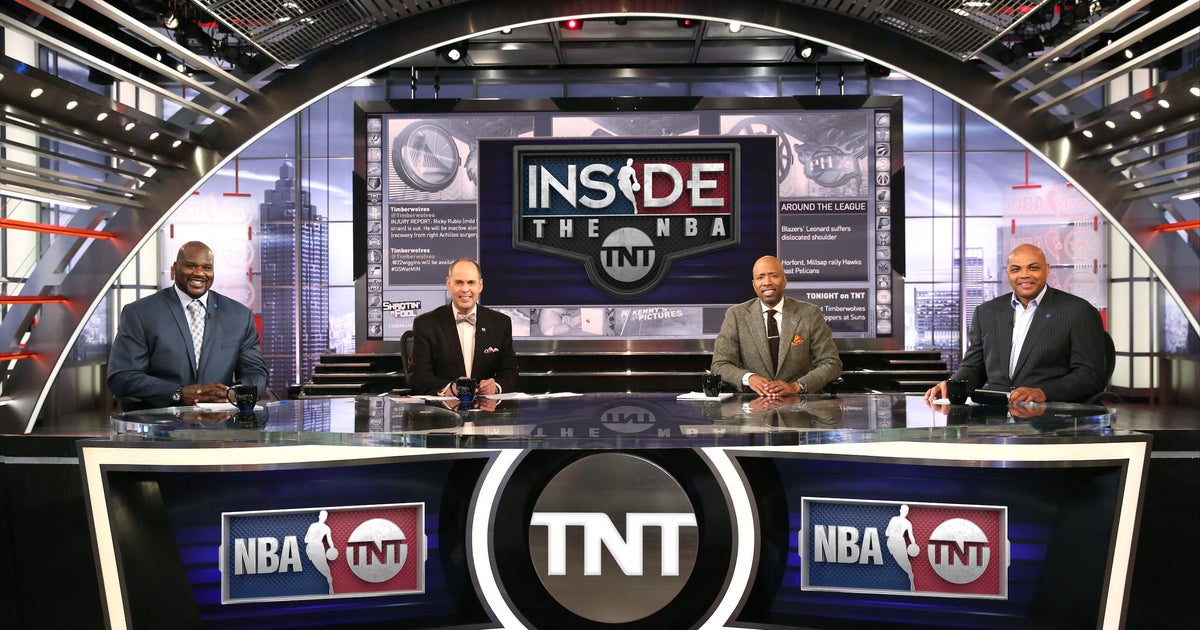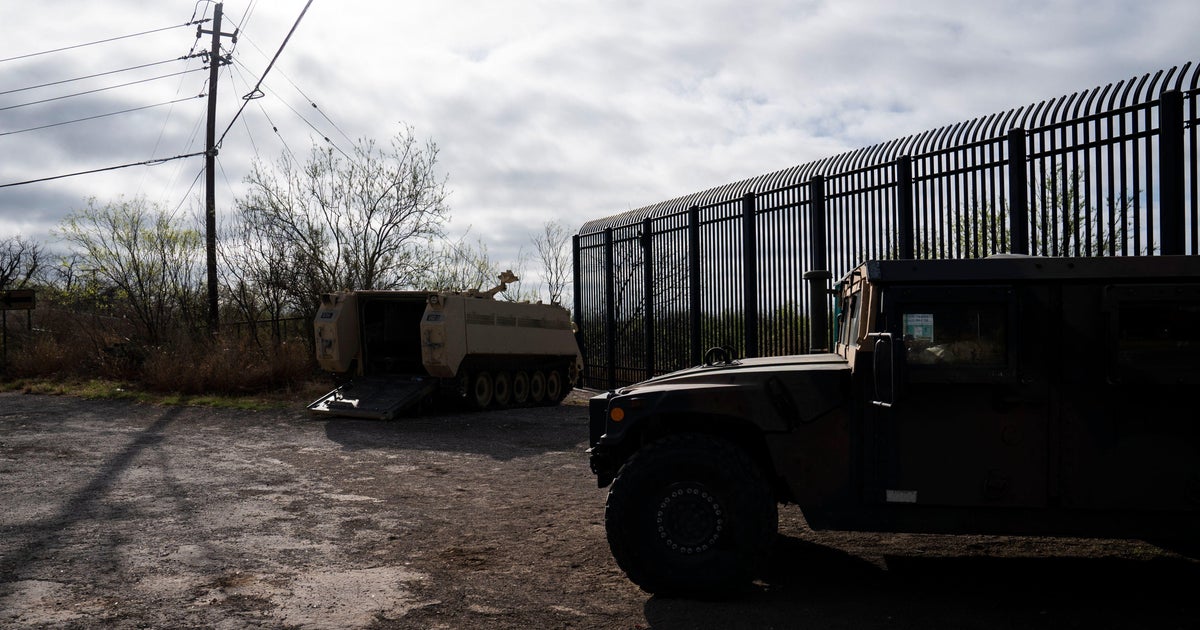Book Excerpt: "Renegades: Born in the USA" by Barack Obama and Bruce Springsteen
In a podcast that debuted earlier this year, former President Barack Obama and Grammy Award-winning singer-songwriter Bruce Springsteen – each an icon in his own rights – came together to discuss friendship, their public and private journeys, and the personal stories – narratives each has shared through politics and popular music – that can help tell the story of an America striving to become a most just, more fair union.
Their conversations have formed the basis of a book, "Renegades: Born in the USA," to be published on Tuesday, October 26, by Crown.
Read an excerpt below, and don't miss Anthony Mason's two-part interview with President Obama and Springsteen, beginning on "CBS Sunday Morning" October 24, and continuing on "CBS Mornings" October 25!
President Obama: As it did for many people, the year 2020 stirred up a whole lot of emotions in me. For three years, I'd witnessed a country that seemed to be getting angrier and more divided with each passing day. Then came a historic pandemic, along with a slipshod government response that rained hardship and loss on millions and forced all of us to consider what's really important in life. How did we get here? How could we find our way back to a more unifying American story?
That topic came to dominate so many of my conversations last year – with Michelle, with my daughters, and with friends. And one of the friends was Mr. Bruce Springsteen. On the surface, Bruce and I don't have a lot in common. He's a White guy from a small town in Jersey. I'm a Black guy of mixed race born in Hawaii with a childhood that took me around the world. He's a rock 'n' roll icon. I'm ... not as cool. And, as I like to remind Bruce every chance I get, he's more than a decade older than me. Though he looks damn good. But over the years, what we've found is that we've got a shared sensibility. About work, about family, and about America. In our own ways, Bruce and I have been on parallel journeys trying to understand this country that's given us both so much. Trying to chronicle the stories of its people. Looking for a way to connect our own individual searches for meaning and truth and community with the larger story of America.
And what we discovered during these conversations was that we still share a fundamental belief in the American ideal. Not as an airbrushed, cheap fiction or as an act of nostalgia that ignores all the ways that we've fallen short of that ideal, but as a compass for the hard work that lies before each of us as citizens to make this place and the world more equal, more just, and more free. Plus, Bruce just had some great stories. So, we added a participant to our conversations: a microphone. And over the course of a few days at the converted farmhouse and property that Bruce shares with his amazing wife, Patti, along with a few horses, a whole bunch of dogs, and a thousand guitars – all just a few miles from where he grew up – we talked.
----------
PRESIDENT OBAMA: It's good to see you, my friend. What brings us here today are conversations we've had over the years. Both of us had to be storytellers. We had to tell our own stories, and they became a part of a larger American narrative. The story we told resonated. I was trying to remember the first time we actually met, and it probably was in 2008. During the campaign.
BRUCE SPRINGSTEEN: That's right.
PRESIDENT OBAMA: You came to do a concert with us in Ohio. Your family was with you and I remember thinking, "He's very low-key, even maybe a little bit shy." And I liked that in you. So I thought, "I hope I get a chance to talk to him at some point." But because it was in the middle of the campaign, we were rushing around. So, you know, we had a nice chat, but it wasn't like we had a deep conversation.
BRUCE SPRINGSTEEN: No.
PRESIDENT OBAMA: There was also the time in New York when you and Billy Joel got up onstage and you guys did a whole concert. That was the first time I saw how much you were working out in the middle of your shows. You were jumping up and down on a piano. You were drenched, man. You were soaked. And I thought, "That man, he might hurt himself out there." But I had been a fan from afar for a long time. And we had started playing some of your music at our rallies. And then we just reached out and said, "Hey, would you be willing to do something?"
BRUCE SPRINGSTEEN: I had wonderful experiences playing those rallies and those appearances with you. Because you gave me something that I've never been able to give myself. And that was the diversity that was in the audience. I was playing to White faces and Black faces, old people and young people. And that's the audience that I always dreamed of for my band. One of the nicest events I had ever performed at was when Jay-Z and I played in Columbus. I think I played "Promised Land." It was a fabulous audience. All kinds of people – working-class people, old folks, and young folks. A lot of folks who didn't know me from the man in the moon, probably hearing me maybe for the first time.
PRESIDENT OBAMA: But the same was true for Jay-Z. I guarantee there were a bunch of elderly White folks in that crowd who had not heard a Jay-Z song in their lives. And I had to tell him, "Change a few lyrics here, brother." We need the family version of some of his stuff.
BRUCE SPRINGSTEEN: It was the first time I met him . . . great guy. I only played three or four songs, but it was a deeply thrilling performance. This is the audience of my dreams, the audience I imagined playing for. Plus, there is so much of the language of my writing that comes out of Christian faith, out of gospel, out of the Bible. There was a commonality of language that filtered across cultural lines.
PRESIDENT OBAMA: Right, folks feel it. Which is why when you do something like "The Rising" – with a choir in the back – or "Promised Land" ... you might have been a preacher, Bruce. You might have missed your calling.
BRUCE SPRINGSTEEN: It was a gift to be able to be there. I have a lot of great memories of playing those rallies. I had watched you ever since you were a senator. You came up on my screen and I thought, "Yeah, that's the language I want to speak, that I am trying to speak." I felt an enormous internal commonality with your vision of the country.
PRESIDENT OBAMA: It felt like we were striving for the same thing. In our own mediums in our own different ways. So when you talk about that straddling between these two places – "Here's where I want the country to be and here's where it is." I've got to be rooted in where it is. But I want to push and nudge folks to where it could be.
BRUCE SPRINGSTEEN: Yeah. In our little corner of what we do, we are working on the same building.
PRESIDENT OBAMA: That's exactly right. And we had a number of those interactions over the years: you performed at the inaugural concert, came by the White House; I run for reelection, you do some more stuff.
BRUCE SPRINGSTEEN: We had a nice dinner or two.
PRESIDENT OBAMA: We had a great dinner at the White House where we sang—
BRUCE SPRINGSTEEN: I played the piano, and you sang.
PRESIDENT OBAMA: Well, I don't know about that. But we all sang some Broadway tunes. And some Motown. And some classics.
BRUCE SPRINGSTEEN: That's right.
PRESIDENT OBAMA: And there were libations involved. And then I said, "Well, he's not as shy as I thought, he just has to loosen up a little bit."
BRUCE SPRINGSTEEN: I don't know if I would say it's true for most people in my business, but the shyness is not unusual. If you weren't quiet, you wouldn't have so desperately searched for a way to speak. The reason you have so desperately pursued your work and your language and your voice is because you haven't had one. And once you realize that, you feel the pain of being somewhat voiceless.
BRUCE SPRINGSTEEN: It becomes the mechanism from which you express the entirety of your life – your entire philosophy and code for living – and that was how it came to me. And I felt, previous to that, I was pretty invisible, and there was a lot of pain in that invisibility.
PRESIDENT OBAMA: And see, the kind of thing that you just said here is how we became friends. Because after a few drinks, and maybe in between songs, you'd say something like that, and I'd say, "Aw, that makes sense to me." Those are some deep waters. And I think that we just grew to trust each other and have those kinds of conversations on an ongoing basis, and once I left the White House we were able to spend more time together. And, turns out, we're just a little simpatico.
BRUCE SPRINGSTEEN: I felt really at home around you.
PRESIDENT OBAMA: And the other part of it was Michelle and Patti hit it off. And Michelle was very pleased about the insights you had about your failings as a man. After we would leave a dinner, or a party, or a conversation, she'd say, "You see how Bruce understands his shortcomings and has come to terms with them—"
BRUCE SPRINGSTEEN: Ha! Sorry about that.
PRESIDENT OBAMA: "—in a way that you have not? You should spend some more time with Bruce. Because he's put in the work." And so, there was also a little of the sense that I needed to get coached in how to be a proper husband.
BRUCE SPRINGSTEEN: It's been my pleasure.
PRESIDENT OBAMA: I tried to explain: "Look, he's ten years older than me. He's been through some of this stuff. I'm still in training mode." But despite the fact that we come from such different places and obviously had different career paths, the same issues that you struggle with have been issues I've struggled with. The same joys and doubts. There's a lot of overlap.
BRUCE SPRINGSTEEN: Well, the political comes from the personal.
PRESIDENT OBAMA: If a musician is looking for a way to channel and work through pain, demons, personal questions, so is a politician when getting into public life.
Excerpted from "Renegades: Born in the USA" by Barack Obama and Bruce Springsteen. Copyright © 2021 by Barack Obama and Bruce Springsteen. Excerpted by permission of Crown. All rights reserved. No part of this excerpt may be reproduced or reprinted without permission in writing from the publisher.
For more info:
- "Renegades: Born in the USA" (Podcast)
- "Renegades: Born in the USA" by Barack Obama and Bruce Spingsteen (Crown), in Hardcover and eBook formats, available October 26 via Amazon and Indiebound
- brucespringsteen.net
- barackobama.com




